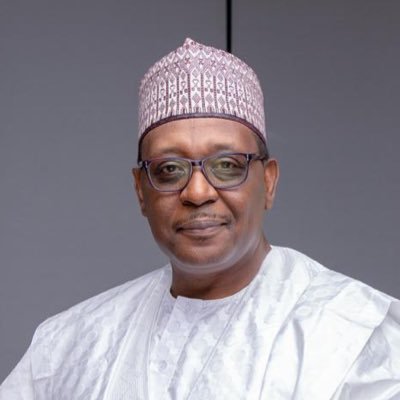On Saturday, Muhammad Pate, the Coordinating Minister of Health and Social Welfare, articulated the urgent necessity to enhance local production of medical products as a strategy to mitigate the rising costs of medications in Nigeria. He noted with concern that the prices of essential drugs, particularly antibiotics and basic medications, have surged significantly compared to a time when these items were easily affordable. The minister attributed the inflation of drug prices partially to “happenings around the international arena,” which suggests that global supply chain disruptions, economic factors, and geopolitical issues are influencing local markets. Such challenges underscore the need for the nation to prioritize self-sufficiency in healthcare.
During his address at a cancer awareness program organized by the Nigerian Air Force Officers’ Wives Association, Pate stressed the importance of “unlocking the healthcare value chain.” He remarked that enhancing local manufacturing capabilities for health products and medicines is a vital step not only to combat high drug prices but also to ensure better access to essential healthcare resources for citizens. Pate was represented by Emmanuel Odu, his Senior Special Adviser, who reiterated the minister’s points regarding the pressing need for Nigeria to become less reliant on imported pharmaceuticals. This shift toward local production could pave the way for more stable pricing and availability of crucial medical supplies.
The minister went on to highlight the government’s ongoing efforts to tackle cancer, revealing plans for the establishment of cancer treatment centers across Nigeria’s six geopolitical zones. This initiative aims to provide comprehensive cancer care within the country, offering services that currently require patients to travel overseas for diagnosis and treatment. By localizing high-level interventions and specialized care, the Nigerian government hopes to reduce the burden placed on families and improve health outcomes for those affected by cancer. Pate emphasized that these centers will be equipped to handle a range of diagnostic and therapeutic tasks currently sought from foreign facilities.
Moreover, Pate underscored that the initiative to set up cancer centers signifies a broader intent to overhaul the national healthcare framework, ensuring that essential treatments are accessible within Nigeria. His vision reflects a commitment to developing a healthcare system that can support citizens in facing severe health challenges without the need for international assistance. The establishment of these centers not only serves to enhance treatment availability but also aims to foster a sense of national pride in the country’s capacity to care for its own population, in a manner similar to medical services provided in developed nations.
In response, Rakiya Abubakar, the National President of the Nigerian Air Force Officers’ Wives Association (NAFOWA), expressed the association’s dedication to fighting cancer and supporting individuals affected by the disease. She articulated a passionate commitment to becoming advocates for cancer awareness and treatment in Nigeria, promising that NAFOWA would leverage education, community outreach, and operational cancer treatment centers to address the challenges posed by the disease. Abubakar’s speech resonated with hope and determination, as she called for unity and collective action against cancer, fostering a collaborative environment for battling this dire affliction within the country.
Finally, Pate’s and Abubakar’s statements converge on a critical note: the necessity for community engagement, governmental support, and the strategic fortification of local health systems to combat the dual challenges of rising drug prices and illness burdens like cancer. Strengthening local production capabilities not only addresses economic concerns but also cultivates a framework within which health care delivery becomes more reliable and efficient for all Nigerians. With renewed solidarity and focused initiatives, there is potential for significant progress in both healthcare accessibility and cancer treatment in Nigeria’s future.


